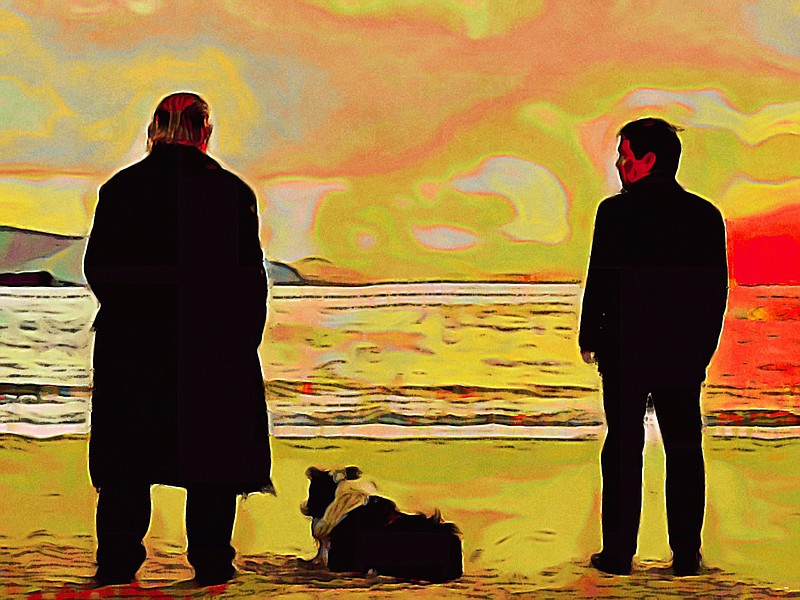There's no best movie, just like there's no best sunset. Subjective judgments derive from all manner of internal calculation, and a lot of the work is done subconsciously. No one is ever wrong when they report their response to a work of art. We love what we love and we like what we like for reasons obscure even to ourselves.
I harbor no illusions; the movie of 2022 is either "Top Gun: Maverick," "Everything, Everywhere, All at Once" or "Avatar: The Way of Water." These are the movies people went to movie houses to see, the sort of experiential spectacles that don't translate well to the home environment, no matter how big a subwoofer you're sitting on. Big movies that require big rooms, big screens and the massed anxieties of strangers sitting together in the dark.
"Maverick" is a hoot, but it strikes me as a two-hour Cialis commercial with a plotline that tracks the "Star Wars" movie now known as "A New Hope" pretty closely. (Use the force, Rooster.) "EEAAO" is a mind-blower, but it isn't as genuinely transgressive or inventive as "Swiss Army Man," the movie its writer-directors made back in 2016. "Avatar" sure is a pretty ecological cautionary tale.
All of them are fun in the way amusement park rides can be fun and while there's nothing wrong with feeling the way those movies can make you feel, I don't know that — despite the playfully sophomoric critique of quantum philosophy embedded in "EEAAO" — they serve as much of a prompt to introspection. I don't know that they tell us much about how we are supposed to live and why; they are all over-the-top fantasies set in unobtainable universes. They are wishful scenarios, dreams we might want to enter.
That's what some people think the movies are. But that's not all they can be, and spectacle movies aren't the only movies we can love.
The Catholic Church has something called Ordinary Time, the term they apply to those periods that fall outside the major liturgical seasons of Advent, Christmas, Lent and Easter. (Christmas and Easter are celebrations; Advent and Lent are times of penance.)
While you might think that Ordinary Time is somehow less important, it's not called "ordinary" because its days and weeks matter less than those that fall in the heightened seasons. It's because they're numbered — the Latin word ordinalis refers to numbers in a series — and they mark the ordered life of the Church and to some degree dictate what Scripture will be read at what Mass.
But maybe it's useful for us to simply think of Ordinary Time as the everyday time, when business as usual is conducted. To use a sports analogy, Ordinary Time would be the regular season as opposed to the playoffs, a time when the groundwork is prepared, when the hard work that sets the stage for the big dramatic finish is done.
Most sports fans care less about the regular season than they do the playoffs; understandably they want to see clear-cut winners and losers, the thrill of victory and the agony of defeat. They want to see fortunes won and lost on the turn of a card, the big swings and emotional sloshes of dramatic reversals. What they want are high-concept escapes from Ordinary Time.
But being a grown-up means coming to an accommodation with Ordinary Time. With understanding that life hardly ever features unequivocal victories or defeats, that we generally dwell in gray precincts. In Ordinary Time, you are never Jake Sully or John McClane crawling through the air ducts of Nakatomi Plaza, though you might find yourself, like Bruce Willis, battling progressive aphasia.
Some people do not like movies set in Ordinary Time; I would go so far as to say some people do not even recognize these sort of movies as movies — for movies are supposed to remove us to synthetic realities where the physics and strictures of our world do not apply. Where we might believe a man can fly and robots can love.
Looking over my list of the best movies of 2022, it's pretty clear I tend to like movies set in Ordinary Time, movies about plausible people making plausible decisions and suffering and coping in ways most of us can understand.
But I see this only after the fact — the list was compiled on deadline, for pragmatic reasons (I was contractually obliged to turn in a ballot), before I had seen every last film that might have merited consideration for inclusion. It's not to be taken seriously, no matter how earnestly it was conceived. As usual, the numbers are a convention, I can't really say that my No. 3 movie is a lesser work than my No. 1 movie.
I've included a second Top 10 list that includes films that, had I voted on another day, might have made my ballot. And other lists of notable films, to try to round out a portrait of a fuzzy year, when some of us started going back to the cinema.
TOP 10 FILMS OF 2022
1. "The Banshees of Inisherin" — Both the funniest and saddest movie I saw all year, "Banshees" is driven by four remarkably nuanced key performances (from Colin Farrell, Brendan Gleeson, Kerry Condon and Barry Keoghan) and the mournful wit of writer-director Martin McDonagh's fatalistic script, which has much to say about why we humans are so driven to scratch our names upon the rocks.
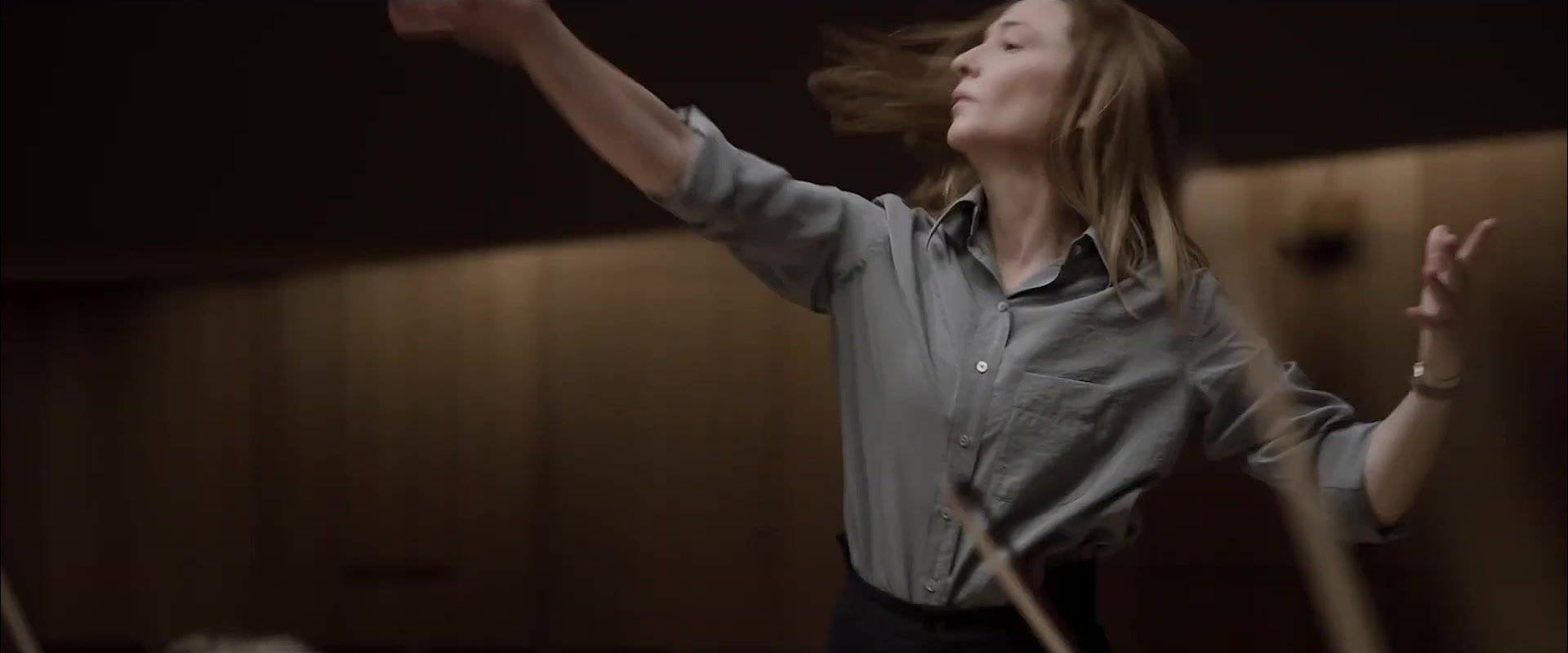 Cate Blanchett stars in “Tàr.” (Special to the Democrat-Gazette)
Cate Blanchett stars in “Tàr.” (Special to the Democrat-Gazette)
2. "Tár" — I wrote a long essay about Todd Field's film for this section a few weeks ago, yet still have things to say about the way it interrogates the ways we celebrate "genius" and argues for the transcendental nature of great art no matter how ugly the monster that made it might be. It's also, ultimately, a very humane movie and the final act — in which the abusive, predatory conductor played by Cate Blanchett gets a semi-comeuppance — has the quality of lucid dream that feels like the trip upriver to kill the tyrannical Kurtz in "Apocalypse Now." If you've got a minute I'll tell you how the movie is all about monster hunting and ego death.
That said, it may well be a movie that's more fun to talk about than to watch. I might watch it again, if only to pay closer attention to that well-appointed, National Public Radio-approved bubble of an apartment that Blanchett shares with Nina Hoss.
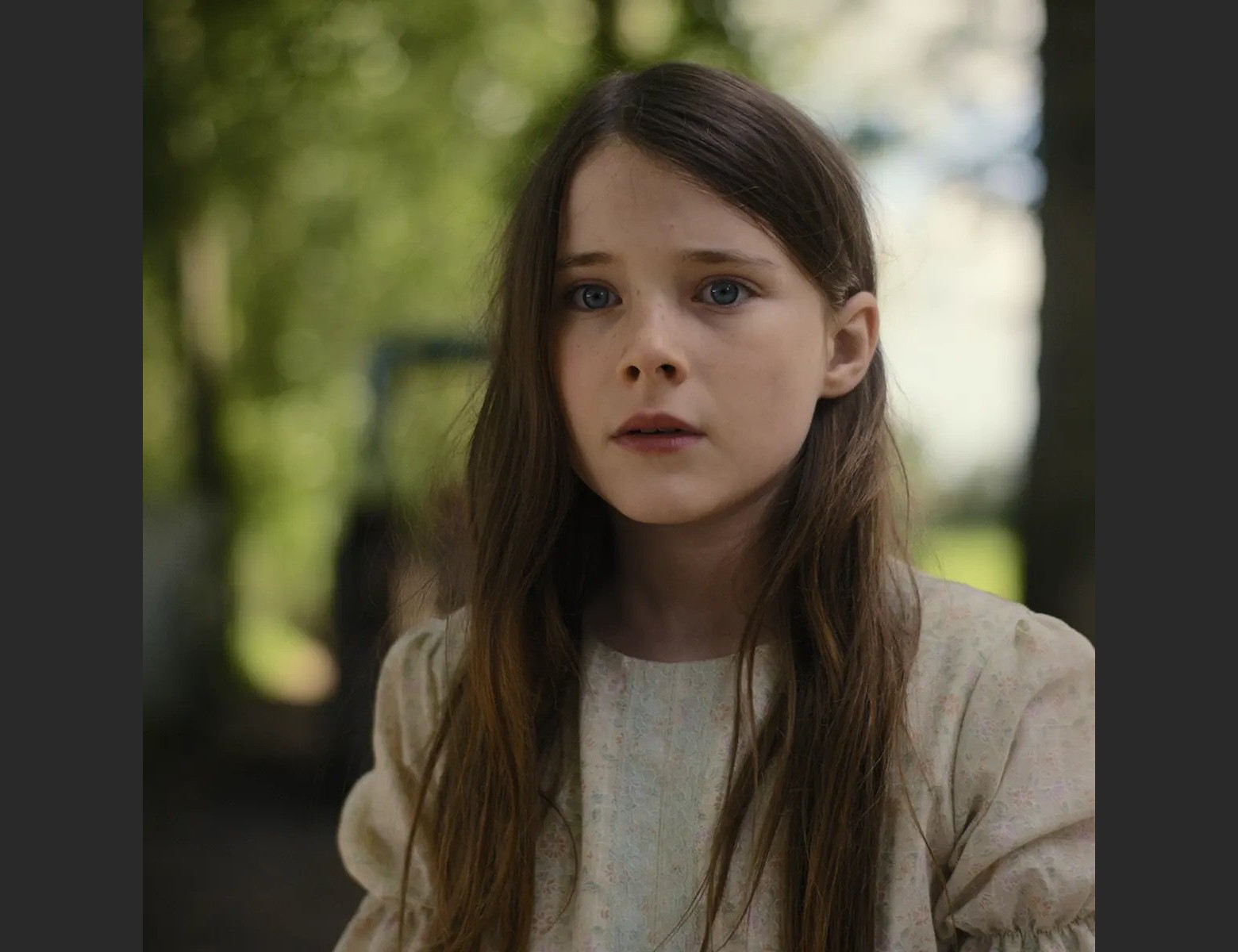 Catherine Clinch stars in “The Quiet Girl.” (Special to the Democrat-Gazette)
Catherine Clinch stars in “The Quiet Girl.” (Special to the Democrat-Gazette)
3. "The Quiet Girl" — Here I go again, talking about a movie that probably fewer than a dozen Arkansans have seen; a movie that's not likely to open here for at least a month or so (if ever). But Colm Bairead's film — in which 9-year-old Cait (Catherine Clinch, whose debut is one of the year's most remarkable performances), a quiet, neglected girl, is sent away from her dysfunctional family to live with better-off relatives for a summer — is a shattering essay on human kindness and, as such, one of the oddest and most satisfying films of recent years. That it's in Irish Gaelic (with subtitles) adds to its strange magic. The world it conjures — rural Ireland, circa 1981 — is as fantastic as Pandora.
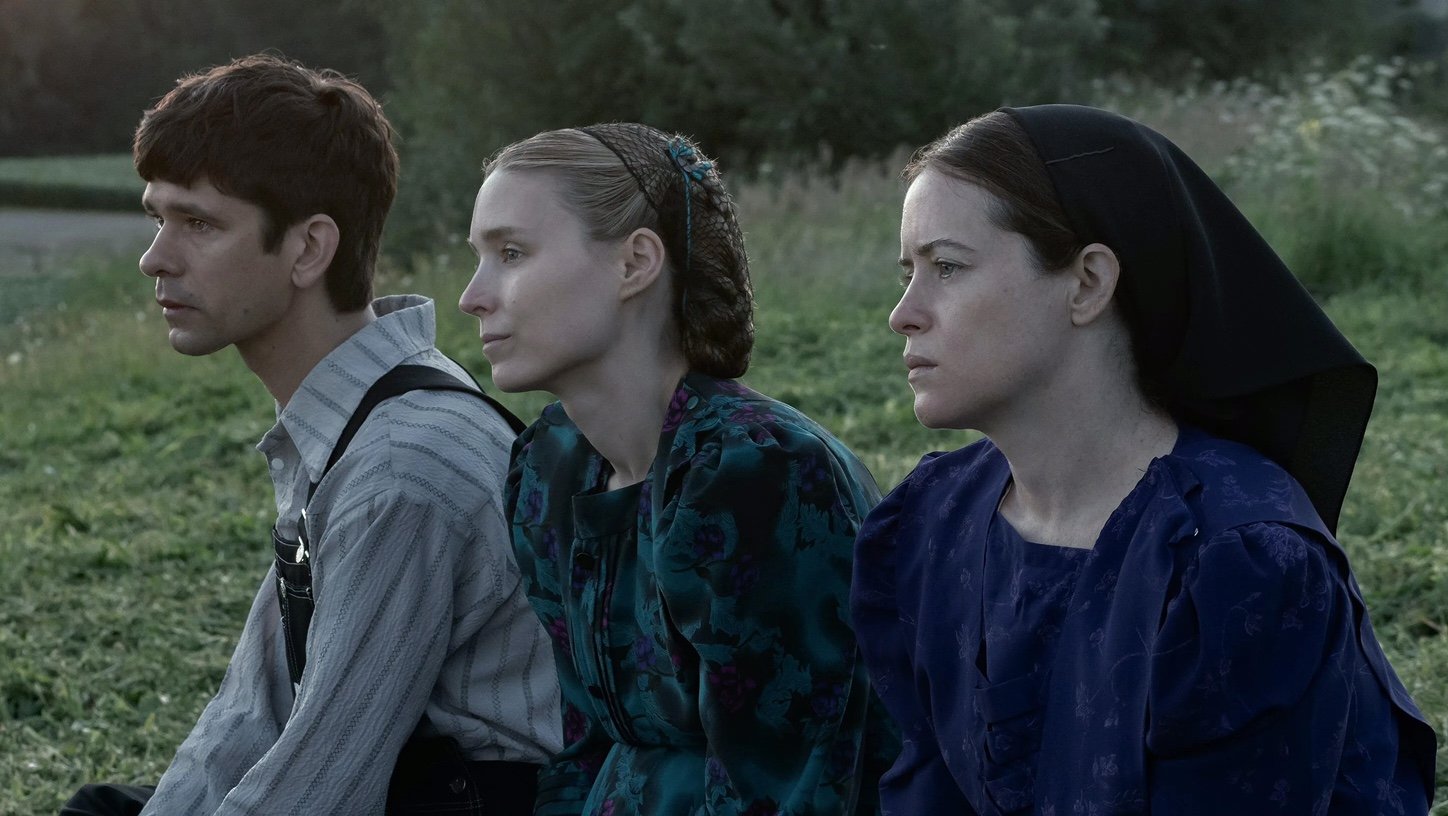 Ben Whishaw, Rooney Mara and Claire Foy star in “Women Talking.” (Special to the Democrat-Gazette)
Ben Whishaw, Rooney Mara and Claire Foy star in “Women Talking.” (Special to the Democrat-Gazette)
4. "Women Talking" — I did not like Sarah Polley's last feature film, "Take This Waltz" (2011), at all. I wanted to like it. I found a great many things wrong with it. It left a bad taste in my mouth. (I did like her 2012 documentary "Stories We Tell.")
All is forgiven with this delicate and compassionate parable, drawn from Miriam Toews' novel based on real events about a group of Mennonite women who must decide how to respond to systemic abuse perpetrated by the community's men. An outstanding cast (including Frances McDormand, Claire Foy, Jessie Buckley, Rooney Mara, Judith Ivey and Ben Whishaw) and an economic, bordering on minimalistic, approach to staging lend the piece a mythic power.
5. "All Quiet on the Western Front" — A straightforward and appropriately brutal German cinematization of Erich Maria Remarque's classic novel pretty much follows the same basic beats as Lewis Milestone's classic 1930 film, but with the enhanced visuals (and violence) a contemporary audience will expect.
6. "Aftersun" — Probably the year's most effective and moving memory play. If I wanted to have a hot take I might say "Aftersun" > "The Fabelmans." I suspect this is our critic Piers Marchant's favorite movie of the year, though I haven't seen his list yet.
7. "Vengeance" — My B.J. Novak knowledge is scant; I was aware of him as a kind of actor/writer/NPR nerd crush but hadn't paid attention to any of his work. My mistake. "Vengeance" is a vivid and sharply observed critique of our bifurcated nation that subverts regional stereotypes while capturing some genuine local color (like the Texas tradition of stealing order numbers from the Whataburger) and overcomes a somewhat clunky third act to register as almost profound.
Not bad for a fish-out-of-water comedy. It also features a strong cast that includes Issa Rae, Ashton Kutcher, Boyd Holbrook and J. Smith-Cameron, who surely knows the power of "Bless your heart."
8. "The Integrity of Joseph Chambers" — Writer/director Robert Machoian reteams with Clayne Crawford, the star of his 2019 breakthrough "The Killing of Two Lovers," for another taut and anxiety-inducing exercise in plausible horror. Tension and dread permeate this story of an American beta male who, suspecting some vague but inevitable catastrophe, decides to prep himself to protect and provide for his family should the worst occur.
Set in the pre-cellphone '90s, the film is both a model of economical (in all senses) filmmaking and a full-blown scary monster movie for adults. Machoian's photographer's eye is keen, but what really stands out is the sound design by Peter Albrechtsen, an ambient old forest buzz-tick-chirp-whistle, and the edgy score by William Ryan Fritch. Alternately witty and gut-scraping, it's reminiscent of Sam Peckinpah's "Straw Dogs" and Jeff Nichols' "Take Shelter."
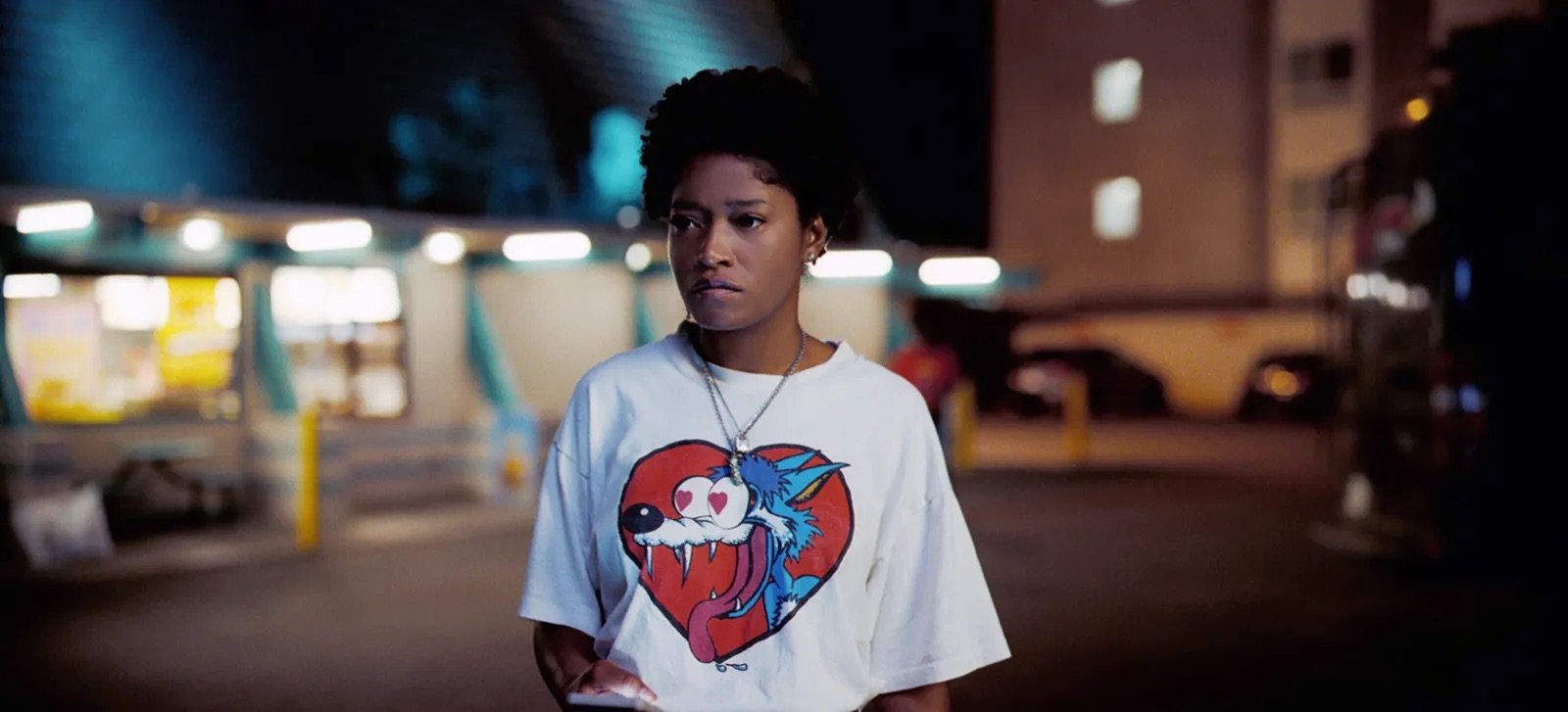 Keke Palmer stars in “Nope.” (Special to the Democrat-Gazette)
Keke Palmer stars in “Nope.” (Special to the Democrat-Gazette)
9. "Nope" — This was my amusement ride of choice this year. Jordan Peele continues his string of innovative and twisty scary movies for thinking folks.
10. "She Said" — The further I get away from it, the more I think this journalism procedural might show the way the work is actually done better than any film since "All the President's Men." And, like "Tár," it's all about the monster hunting.
AN ALTERNATE TOP 10
1. "Everything Everywhere All at Once" — Had I had seen this film by the Daniels (as the directing team of Daniel Kwan and Daniel Scheinert style themselves) before having encountered any reviews, I might have joined the legions of critics who have praised it as a revolutionary blast of life-affirming nihilism.
But I didn't see it until long after it had arrived in theaters and everyone had weighed in on its virtues. Though I find very little to criticize about it — it's too long at two hours and 19 minutes and some of the fight scenes seem repetitive — I don't think it's all that. Still, Michelle Yeoh is splendid as the harried laundromat owner who finds herself dragooned into saving the multiverse by an alpha version of her diffident husband (Ke Huy Quan), and the script's inventiveness and robust action elevate what could have been a sub-Michel Gondry premise.
2. "Top Gun: Maverick" — Those are real jets onscreen! Cool!
3. "After Yang" — A thoughtful, quiet science fiction weepie by the immensely interesting writer-director Kogonada, whose 2017 debut, the architectural study/character-driven indie drama "Columbus," similarly subverted genre expectations.
Here, a family, led by married couple Jake (Colin Farrell) and Kyra (Jodie Turner-Smith), worry about the family android, acquired when their daughter Mika (Malea Emma Tjandrawidjaja) was born — as is the custom in this near-future — to serve as her companion. Yang (Justin H. Min) is beginning to malfunction in minor ways that portend major trouble.
Because they got him secondhand from a shop that no longer exists, his warranty is useless. While they could return him to the original manufacturer for a replacement, that would likely mean Yang would be scrapped. And they cannot countenance throwing away family.
Kogonada's world is both familiar and exotic — and like the Daniels' "EEAAO," somewhat evocative of Gondry. It's a strange and beautiful and remarkably sad new world.
4. "Happening" — Based on French writer Annie Ernaux's memoir "L'evenement" ("The Event') about her experience with illegal abortion when she was a student in Rouen, Audrey Diwan's "Happening" is a timeless film that by chance has arrived at a particularly fraught time.
It bears certain similarities to Romanian director Cristian Mungiu's 2007 masterpiece "4 Months, 3 Weeks and 2 Days" and Eliza Hittman's 2020 film "Never Rarely Sometimes Always," but unlike those angrier films, this one is less political than personal, deeply sad but almost matter-of-fact about the ways in which the state punishes vulnerable citizens.
5. "Blonde" — Australian director Andrew Dominik's "Blonde" is no more about the historic Marilyn Monroe than his countryman Baz Luhrman's "Elvis" is about a certain hillbilly cat. And I wish Dominik hadn't felt the need to call his blonde anything in particular, because we'd all get it anyway.
Still, the film, as maligned as it was in some quarters, is tough and unsentimental, even though the fine performance by Cuban-born actor Ana de Armas conforms to the now-consensus portrait of Norma Jeane/Marilyn as a passive victim of the unwoke patriarchy of pre-1960s America. (When did the '60s begin? If not on Nov. 22, 1963, maybe Aug. 4, 1962.)
It's not, it should be stressed, journalism, what Carl Bernstein calls the best obtainable version of the truth.
On the other hand, it is a kind of poetry, which Miller Williams called the lie that tells the truth. Or maybe just "a truth," not about the particulars of a life, but about how it is to live a certain way. I know enough about the putative subject of the film to challenge its assumption that Marilyn was almost completely without agency, that she was in fact largely the captain of her own career, but that's the sort of complication that can be safely elided when constructing a myth.
6. "White Noise" — I'm a huge fan of Don DeLillo's novel, which I did not think could be profitably adapted to the screen. But Noah Baumbach's movie surprised me, and while I have some qualms, it stands on its own as a smart and funny, if ultimately superfluous, film that's most notable for Adam Driver's vanity-free performance. It gets extra points for degree of difficulty.
7. "The Good Nurse" — I'm not exactly sure why this riveting, ripped-from-the-headlines medical/crime procedural didn't get more attention. Fantastic performances from Eddie Redmayne and Jessica Chastain (as real-life hero Amy Loughren) elevate Tobias Lindholm's thriller.
8. "Decision to Leave" — A classic neo-noir detective story from the great Korean director Park Chan-wook.
9. "Emily the Criminal" — Marvelous Aubrey Plaza stars as an art-school dropout who, with $70,000 in student loan debt and a ticky tack aggravated-assault conviction that made it impossible for her to find remunerative work, turns to credit card fraud to get over. Writer-director John Patton Ford, making his feature debut, has a good feel for increasing tension in this plausible horror story.
10. "The Eternal Daughter" — Tilda Swinton has a dual role as a mother and her adult daughter in Joanna Hogg's beautifully realized essay about grief and memory.
Honorable mentions: "Don't Worry, Darling," "New West," "Glass Onion: A Knives Out Mystery," "The Inspection."
◼️ 10 Documentaries to watch for: "The 'Vous" (it might be premature to mention the film by Little Rock's Jack Lofton about the venerable Memphis barbeque restaurant "The Rendevous" here, but look for it next year); "Bad Axe"; "Turn Every Page — The Adventures of Robert Caro and Robert Gottlieb"; "Fire of Love"; "Good Night Oppy"; "Descendant"; "Riotsville, USA"; "All That Breathes"; "Dreaming Walls: Inside the Chelsea Hotel"; "Three Minutes: A Lengthening."
◼️ Animated films I enjoyed: "Guillermo Del Toro's Pinocchio," "Apollo 10 ½: A Space Age Childhood," "Wendell & Wild," "Marcel the Shell With Shoes On," "Turning Red," "Beavis and Butt-Head Do the Universe."
◼️ Best TV Series: "Bad Sisters" (Apple TV+), "Barry" (HBO), "Better Call Saul" (FX), "Derry Girls" (Netflix), "The Great" (Hulu), "Hacks" (HBO), "Julia" (HBO), "Pachinko" (Apple TV+), "Severance" (Apple TV+), "This Is Going to Hurt" (Sundance), "We Own This City" (HBO), "The White Lotus" (HBO).
◼️ Not for me: "Babylon," "The Fabelmans," "Bardo, False Chronicle of a Handful of Truths," "The Batman," "Amsterdam," "Bones and All," "Emancipation," "The Whale," "Empire of Light," "Three Thousand Years of Longing."
Email: [email protected]

